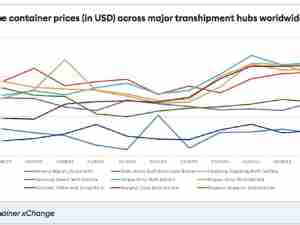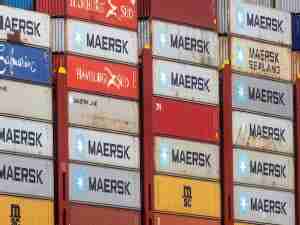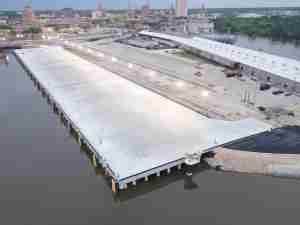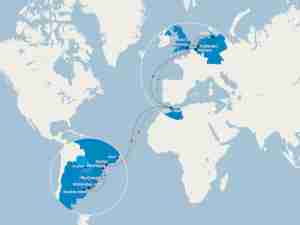My name is Gary P. LaGrange, President and Chief Executive Officer of the Port of New Orleans and Chairman of the American Association of Port Authorities. AAPA represents the leading public port authorities in the Western Hemisphere, and in the US much of this nation's overseas trade flows through our member ports. I am grateful for the opportunity to appear before you today to highlight the urgent need for funding, tax relief, and other assistance to restore to full operation the Port of New Orleans and other ports damaged by Hurricanes Katrina and Rita, and to discuss lessons learned. I also want to personally thank Senators Frist, Baucus and Schumer for their recent visit to the port to see first hand the challenges we face as we rebuild New Orleans.
Within a one-month span, Hurricanes Katrina and Rita have impacted over twenty ports in the Gulf of Mexico that are members of AAPA, and many additional private and public ports in the region. The impact of these hurricanes has varied, with the largest impact on the ports of Louisiana, Texas, Alabama and Mississippi. For several ports, including New Orleans, the impact has been considerable; some of the facilities may need to be relocated, and it will take months if not years to fully recover. In New Orleans, for example, we are only 20% operational.
Value of Maritime Trade to This Nation
This nation is heavily dependent on maritime trade. America's ports are our gateways to the world and a critical component in the nation's economic health and national defense. When ports are impacted, there is a quick and sizable ripple effect throughout the economy. US ports and waterways handle over 2 billion tons of cargo annually. Much of that commerce flows through the impacted ports in Louisiana, Texas, Alabama and Mississippi. These ports are heavily linked to this nation's petroleum, grain and farm products, fruit, poultry, coffee, chemical and steel trades. The Port of New Orleans serves as the focal point for waterborne transportation of cargo to 28 states. That cargo activity supported $37 billion in economic benefits to the country and generated $2.8 billion in federal tax revenue.
Agricultural products from 17 Midwestern states flow through the Mississippi River. Over half of the grain exports for this nation depart from ports impacted by Katrina. Oil, agriculture and chemicals rely heavily on the infrastructure provided in these port areas. Additionally, these Gulf ports serve as one of the nation's largest gateways for poultry exports, and the inability to handle frozen poultry products through unique dockside facilities would affect the industry worldwide. Estimates for the Port of New Orleans shows that relying on less efficient means to transport these products would increase costs by $7-to-$8/ton, thus making US poultry products extremely noncompetitive in the international marketplace.
Steel is another commodity handled by the Port of New Orleans. The cost of diverting steel imports from New Orleans would increase the cost of such products by an estimated $80-to-$90/metric ton because of reduced access to inland barge and rail transportation systems and associated delay costs.
Cruises are also an important component of many ports activities, including the Port of New Orleans, which prior to Katrina was the fastest growing cruise port in the World. Cruises provide significant tourist trade, jobs and income for New Orleans and the region, and their rebound will depend heavily on the ability of New Orleans to rebuild.
Federal Assistance Important
Catastrophic events, whether natural or man-made, can greatly impact maritime trade. Hurricanes are especially dangerous and are the most frequent threat since ports are located in coastal areas. Ports also are impacted by o









